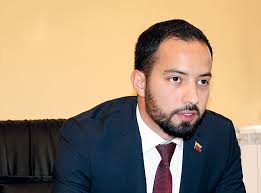Venezuela
Officially the Bolivarian Republic of Venezuela (Spanish: República Bolivariana de Venezuela), is a federal republic located on the northern coast of South America. It is bordered by Colombia on the west, Brazil on the south, Guyana on the east, and the islands of Trinidad and Tobago to the north-east. Venezuela’s territory covers around 916,445 km2 (353,841 sq mi) with an estimated population around 33,221,865. Venezuela is considered a state with extremely high biodiversity (currently ranks 7th in the world’s list of nations with the most number of species), with habitats ranging from the Andes Mountains in the west to the Amazon Basin rain-forest in the south, via extensive llanos plains and Caribbean coast in the center and the Orinoco River Delta in the east.
The territory currently known as Venezuela was colonized by Spain in 1522 amid resistance from indigenous peoples. In 1811, it became one of the first Spanish-American colonies to declare independence, which was not securely established until 1821, when Venezuela was a department of the federal republic of Gran Colombia. It gained full independence as a separate country in 1830. During the 19th century, Venezuela suffered political turmoil and autocracy, remaining dominated by regional caudillos (military strongmen) until the mid-20th century. Since 1958, the country has had a series of democratic governments. Economic shocks in the 1980s and 1990s led to several political crises, including the deadly Caracazo riots of 1989, two attempted coups in 1992, and the impeachment of President Carlos Andrés Pérez for embezzlement of public funds in 1993. A collapse in confidence in the existing parties saw the 1998 election of former coup-involved career officer Hugo Chávez and the launch of the Bolivarian Revolution, beginning with a 1999 Constituent Assembly to write a new Constitution of Venezuela. This new constitution officially changed the name of the country to República Bolivariana de Venezuela (Bolivarian Republic of Venezuela).
Venezuela is a federal presidential republic consisting of 23 states, the Capital District (covering Caracas), and federal dependencies (covering Venezuela’s offshore islands). Venezuela also claims all Guyanese territory west of the Essequibo River, a 159,500-square-kilometre (61,583 sq mi) tract dubbed Guayana Esequiba or the Zona en Reclamación (the “zone being reclaimed”). Venezuela is among the most urbanized countries in Latin America; the vast majority of Venezuelans live in the cities of the north, especially in the capital (Caracas) which is also the largest city in Venezuela.
Since the discovery of oil in the early 20th century, Venezuela has the world’s largest oil reserves and has been one of the world’s leading exporters of oil. Previously an underdeveloped exporter of agricultural commodities such as coffee and cocoa, oil quickly came to dominate exports and government revenues. The 1980s oil glut led to an external debt crisis and a long-running economic crisis, in which inflation peaked at 100% in 1996 and poverty rates rose to 66% in 1995[9] as (by 1998) per capita GDP fell to the same level as 1963, down a third from its 1978 peak. The recovery of oil prices in the early 2000s gave Venezuela oil funds not seen since the 1980s. The Venezuelan government then initiated populist/revisionist policies that initially boosted the Venezuelan economy and increased social spending, significantly reducing economic inequality and poverty. Such populist policies were questioned since their initiation and the over dependence on oil funds led to overspending on social programs while strict government polices, which were initially supposed to prevent capital flight, created difficulties for Venezuela’s import-reliant businesses.
Venezuela under Hugo Chávez suffered “one of the worst cases of Dutch Disease in the world” due to the Bolivarian government’s large dependence on oil sales. Poverty and inflation began to increase into the 2010s. Nicolás Maduro was elected in 2013 after the death of Chavez. Venezuela devalued its currency in February 2013 due to the rising shortages in the country with shortages in Venezuela including milk, flour, and other necessities and malnutrition then increasing, especially among children. In 2014, Venezuela entered an economic recession. In 2015, Venezuela had the world’s highest inflation rate with the rate surpassing 100%, becoming the highest in the country’s history. Economic problems, as well as crime and corruption, were some of the main causes of the 2014–15 Venezuelan protests, which left more than 50 protesters killed.







